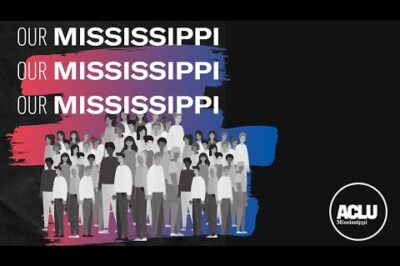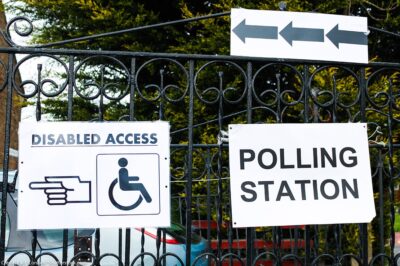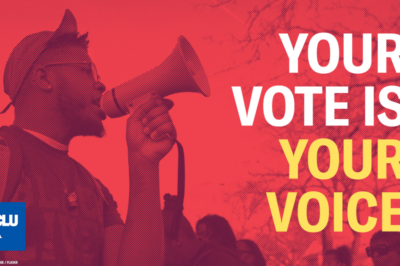ACLU Moves To Intervene In Alabama Voting Rights Act Challenge
ACLU Represents NAACP And Voters Affected By Oversight Provision
FOR IMMEDIATE RELEASE
CONTACT: (212) 549-2666; media@aclu.org
WASHINGTON – The American Civil Liberties Union and the ACLU of Alabama filed a motion today in a Washington, D.C. federal court to intervene in a challenge to the Voting Rights Act brought by Shelby County, Alabama. The ACLU charges that Section 5 of the Act, which since 1965 has protected racial and language minorities access to voting across the South and the nation, should remain in place. Section 5 requires certain jurisdictions like Shelby County that have a history of racial discrimination in voting to obtain advance approval from the federal government before changing their election laws.
The ACLU filed the intervention on behalf of the Alabama State Conference of the National Association for the Advancement of Colored People (NAACP) and four voters who live in Shelby County.
“Unfortunately, our country has a long history and ongoing problem of racial discrimination and racially polarized voting,” said Meredith Bell-Platts, a senior attorney with the ACLU Voting Rights Project. “Across the country and in Shelby County there has been a regular recurrence of discriminatory voting practices that have been alleviated by the Section 5 preclearance requirement. It’s clear that we still need this voting rights protection that has enabled millions of voters to overcome the worst voting rights violations.”
Shelby County and cities in the county have attempted to circumvent the Section 5 preclearance requirement by unlawfully implementing election plans that dilute the minority vote.
In 2006, without obtaining federal preclearance, the city of Calera in Shelby County held city council elections after conducting nearly 200 annexations and redrawing its city council districts. The redistricting eliminated the only district that gave African-American voters the opportunity to elect a candidate of their choice. In the subsequent elections, Councilman Ernest Montgomery, the second African-American in the history of Calera to become a member of the city council, lost his seat.
After the changes were challenged by the U.S. Department of Justice under Section 5, Calera was required to redo its discriminatory redistricting plan so that it would not dilute the minority vote and to conduct new elections. Under the remedial plans, Montgomery regained his seat.
“Every eligible voter in Alabama, regardless of race, has the right to have his or her vote count,” said Bernard Simelton, President of the Alabama State Conference of the NAACP. “Unfortunately, we have seen that the danger of minority disfranchisement persists. Section 5 is an important part of ensuring equal access to voting is protected.”
“The basis of our democracy is that every American citizen has the right to participate equally in the political process,” said Olivia Turner, Executive Director of the ACLU of Alabama. “Despite significant progress over the years, many minority voters in Alabama continue to face great obstacles in exercising that right.”
Attorneys on the case include Bell-Platts and Laughlin McDonald of the ACLU Voting Rights Project, Allison Neal of the ACLU of Alabama, Art Spitzer of the ACLU National Capitol Area and Laura D. Blackburne and Victor L. Goode of the NAACP Office of General Counsel.
The motion for intervention in the case, Shelby County v. Holder, was filed in U.S. District Court for the District of Columbia and can be found online at: www.aclu.org/voting-rights/shelby-county-alabama-v-holder-memo-support-motion
More information on the work of the ACLU Voting Rights Project is available at: www.aclu.org/voting-rights
Stay Informed
Every month, you'll receive regular roundups of the most important civil rights and civil liberties developments. Remember: a well-informed citizenry is the best defense against tyranny.




